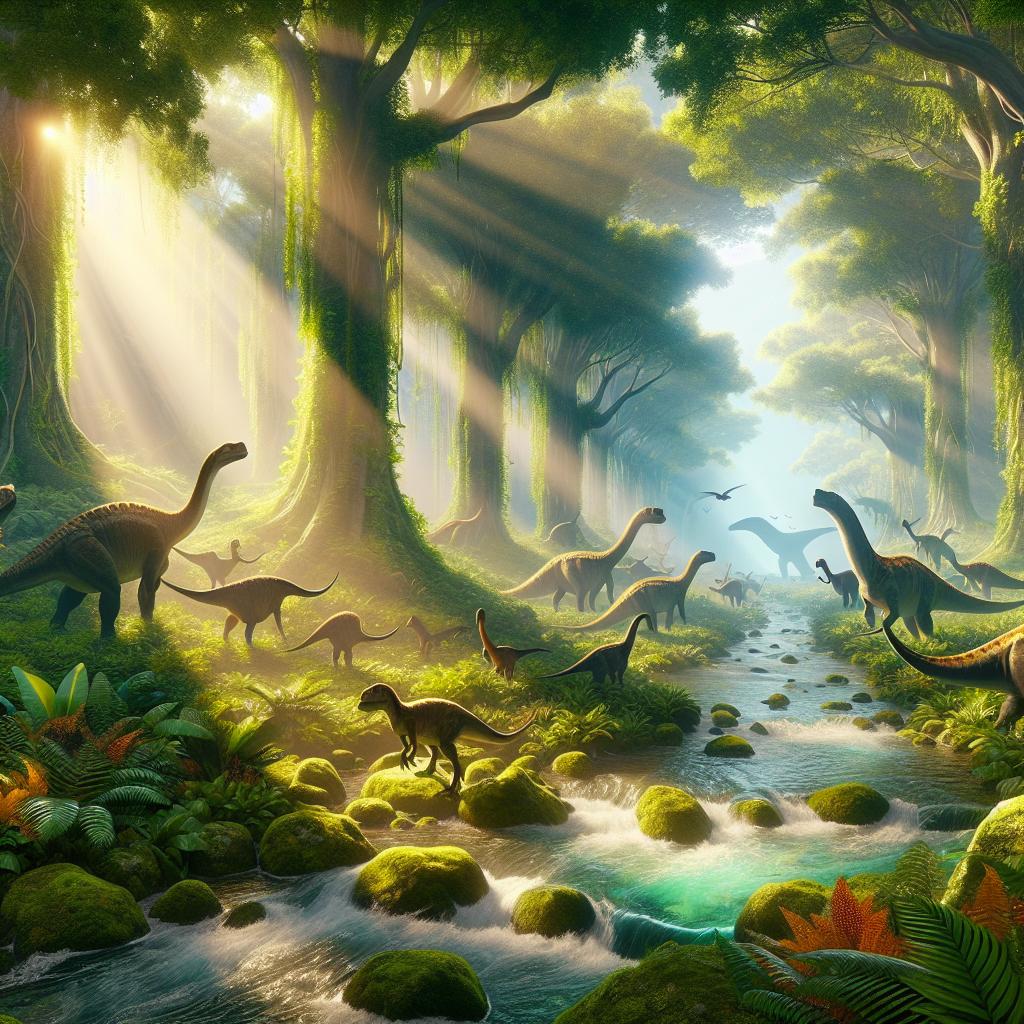
Divine Insights: Unveiling the Vegetarian Habits of Theropod Dinosaurs
Published: 17 June 2024
Vegetarian Theropod Dinosaurs: Unveiling the Truth from a Christian Perspective
The study of dinosaurs has always captivated our imaginations, and it continues to be a topic of great interest and intrigue. In recent years, there have been discussions regarding the diet of theropod dinosaurs, specifically whether some of them were actually vegetarian. As Christians seeking to understand the world around us through the lens of biblical truth, let us delve into this topic and explore what the evidence suggests. In doing so, we will address eight key questions that arise when considering vegetarian theropod dinosaurs.
1. What is the significance of vegetarian theropod dinosaurs?
The discovery of vegetarian theropod dinosaurs challenges the long-held belief that all theropods were carnivorous predators. This finding sheds light on the incredible diversity within the dinosaur kingdom and reminds us that our understanding of these magnificent creatures is constantly evolving. From a Christian perspective, it is a reminder that God's creation is full of surprises, and His design extends beyond our limited comprehension.
2. How do scientists determine the diet of fossilized animals?
When studying fossilized animals, scientists primarily rely on their bones and teeth to deduce their diet. Sharp teeth and claws are often associated with carnivorous creatures, as they are well-suited for ripping flesh. However, these same features can also be effective in processing rough vegetation. To determine the actual diet of these creatures, scientists analyze fossilized dung and stomach contents when available. This allows them to gain more accurate insights into what these dinosaurs consumed.
3. What evidence supports the existence of vegetarian theropod dinosaurs?
Dr. Lindsay Zanno of the Chicago Field Museum conducted a study analyzing 90 species of theropods, a suborder known for its carnivorous nature. Surprisingly, 44 of these species showed clear signs of vegetarianism. These findings challenge the notion that plant-eating was the exception rather than the norm for theropods. The ornithomimosaurs, therizinosaurs, oviraptorosaurs, alvarezauroids, several early birds, and even the troodontid Jinfengopteryx demonstrated a preference for plants in their diet. These discoveries suggest that vegetarianism was more prevalent among theropods than previously thought.
4. What does the Bible say about the diet of animals?
When considering the diet of animals, we can turn to the biblical account in Genesis 1:30, where God declares, "And to every beast of the earth and to every bird of the heavens and to everything that creeps on the earth, everything that has the breath of life, I have given every green plant for food." According to this verse, God originally designed all animals, including dinosaurs, to be vegetarian. Therefore, the existence of vegetarian theropod dinosaurs aligns with the biblical narrative.
5. How does a vegetarian diet benefit animals?
From an ecological standpoint, a vegetarian diet requires less biomass to sustain compared to a carnivorous diet. This means that animals capable of surviving on vegetation have a significant advantage during periods when prey is scarce. It is not surprising to find many animals that are not obligate carnivores but instead possess the ability to survive on or even prefer vegetation. This adaptation showcases God's wisdom in designing creatures with diverse dietary needs to ensure their survival in different environments.
6. What are some challenges to the theory of dinosaur-to-bird evolution?
The theory that dinosaurs evolved into birds is widely debated within the scientific community. While some researchers support this idea, others propose alternative theories that challenge the dinosaur-to-bird connection. One such challenge stems from conflicting interpretations of fossil evidence and paleobiology. Some scientists argue against the dinosaur-to-bird theory based on the lack of conclusive evidence and inconsistencies in this line of evolutionary reasoning. These debates remind us that scientific theories are subject to change as new discoveries emerge.
7. What are the implications of vegetarian theropods for the dinosaur-to-bird theory?
The discovery of vegetarian theropod dinosaurs adds another layer of complexity to the dinosaur-to-bird theory. Traditionally, theropods were believed to be the ancestors of birds. However, the existence of vegetarian theropods suggests that not all theropods followed a carnivorous diet. This challenges the assumption that predatory dinosaurs exclusively evolved into birds. It highlights the need for further research and a willingness to reconsider prevailing theories in light of new evidence.
8. How can we interpret these findings from a Christian perspective?
As Christians, we can view the discovery of vegetarian theropod dinosaurs as a testament to the diversity and complexity of God's creation. It reminds us that our understanding is limited, and God's design extends far beyond our comprehension. The findings also emphasize the importance of approaching scientific theories with critical thinking and an open mind. While interpretations may differ, we can trust that God's Word provides us with foundational truths that guide our understanding of the natural world.
In conclusion, the existence of vegetarian theropod dinosaurs challenges long-held assumptions about their carnivorous nature. These findings align with the biblical account of God's original design for all animals to be vegetarian. As Christians, we can appreciate these discoveries as a testament to God's creativity and wisdom in crafting a diverse and intricate world. While debates surrounding dinosaur-to-bird evolution persist, we can approach these discussions with an open mind, always seeking truth and embracing the wonder of God's creation.
